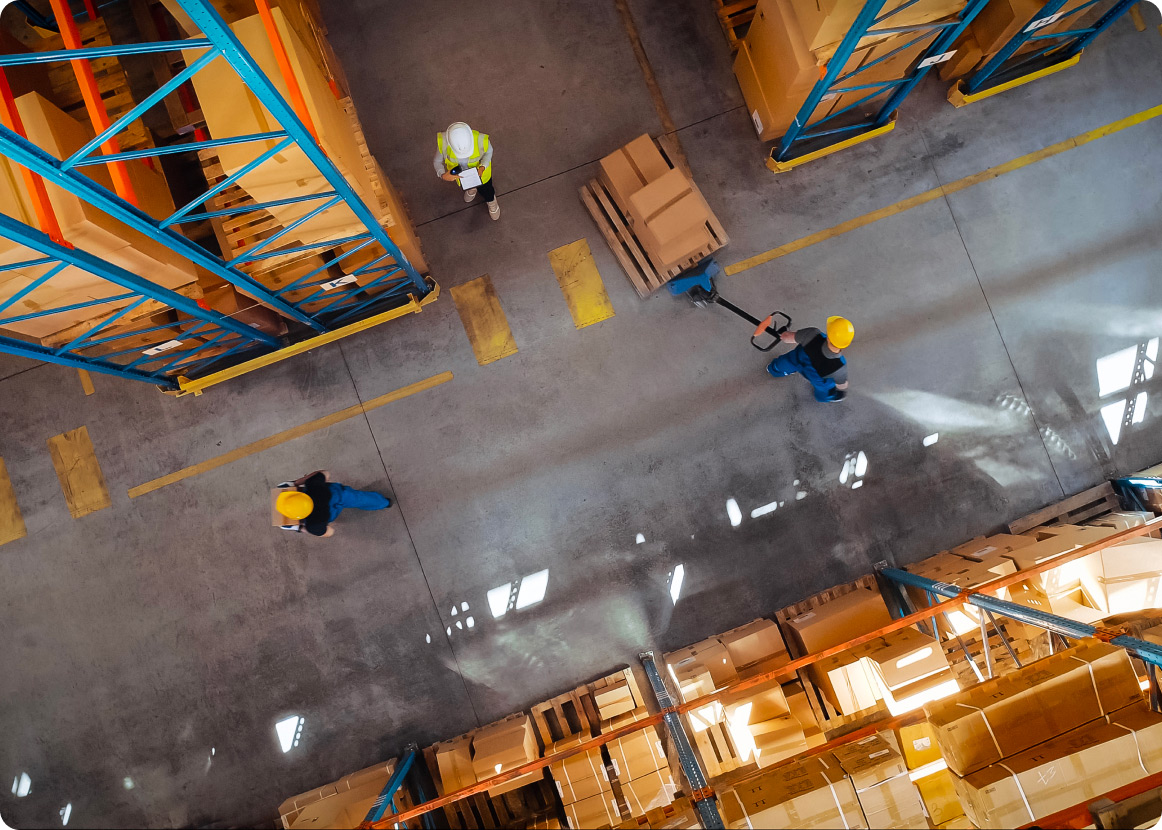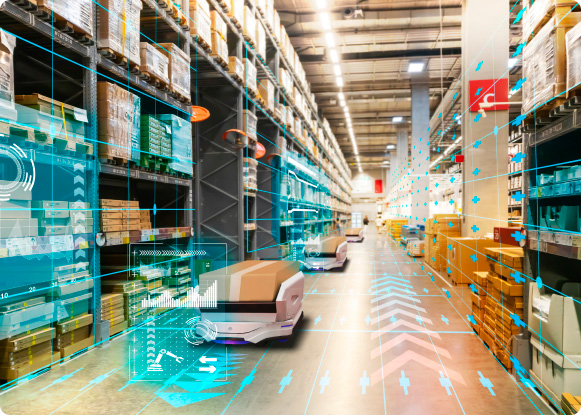Logistics has been a vital element in the industrial sector for as long as there have been factories, roads, and trucks. And before that, workshops, tracks, and carts.
Getting materials to where they need to go, then products to market.
Long before the concept of business-to-business, direct-to-customer, business-to-customer and other forms of distribution existed, Factory A needed to receive deliveries of materials and parts from Factories B, C, D, and F so that it could make its product. Then they needed to send truckloads of their finished goods to the shops that wanted to sell them.
That sounds easy. But it’s becoming increasingly complex.
Today’s industrial logistics providers have to navigate a complex web of suppliers, manufacturers, partners, and retailers, threading the needle through transportation networks and multiple obstacles. All while trying to satisfy the numerous requirements of various industries and customers, often in different countries.
Meet our industrial logistics expert: Christophe Pintore
Christophe Pintore is FM Logistic’s business development and global account corporate director. He has been with us for thirty years, having worked up the ranks through various engineering and managerial roles – and knows the ins and outs of the business of logistics.
And who can guide you better through the challenges and opportunities of industrial logistics than an expert in the industrial sector?
With Christophe’s help, we’ll discuss the challenges faced by industrial supply chains – and see how technological and environmental considerations are transforming the sector. We’ll also look ahead into the exciting future of industrial logistics.
Challenges and expectations in industrial logistics
If there were one word to describe industrial logistics, it would be complexity.
No two industrial customers are the same. Every distribution network is different. And different types of customers require different logistics solutions.
For example, garage operators want express courier deliveries direct to their doors. Suppliers of raw materials need to send things, often in large volumes, by truck, boat, or rail. Sometimes those products are hazardous or need to be stored under very specific conditions. Some customers need deliveries that fill only half a truck.
In Christophe’s view, finding the right partners is crucial – but also very challenging: ‘The first challenge is to find partners capable of providing a wide range of last-mile solutions adapted to the specific challenges of each country.’
The next obstacle is to meet the specific requirements of the customer, especially when handling dangerous goods. Trained personnel are essential. And the closer you get to the end customer, the more difficult it becomes to find the right partner.
And on top of that, customers, as always, expect fast and frequent deliveries.
The emerging technologies that are transforming industrial logistics
But with big challenges come big opportunities.
For example, to optimize. FM Logistic’s multi-client warehouse shares equipment and personnel under our One Roof concept: storage, co-packing, picking, and fulfillment are undertaken by using pooled resources, thus providing efficient processes for all of our customers. And all of these things are made possible by the use of technology geared to satisfy multiple demands and coordinate flows in the most efficient way.
Another opportunity for industrial supply chains is omnichannel logistics. Crucial functions such as traceability, transportation, and warehouse management can now be centralized into a single portal, which is a game changer. Christophe gives an example from the automotive workshop sector: ‘Integrating omnichannel logistics into the industrial supply chain enabled us to reduce delivery times that were formerly up to 11 days down to only 48 hours. This was done through the joining up and optimizing of both transport and warehouse operations.’
The importance of sustainable industrial logistics
FM Logistic supports its industrial customers as they transition from a traditional supply chain to omnichannel logistics by making them aware of the options available to them and also the environmental issues that our approach helps to address. It is crucial to understand the specifics of each customer’s distribution networks, because one size does not fit all.
FM Logistic carries out continuous monitoring to find and propose innovative long-term solutions, while taking account of essential environmental considerations.
Traceability is key for industrial logistics, as is the use of KPIs for delivery times, order preparation, and the quality of the products at the time of delivery. According to Christophe, ‘We reconcile the demands of quality and industrial compliance with the drive for speed and flexibility through rigorous traceability, confirmed by monitoring key KPIs.’
The future of industrial supply chains
AI is coming to the industrial supply chain. There’s a major opportunity to improve current optimization solutions with the help of artificial intelligence; especially when improving flows through complex distribution networks.
‘AI will permit us to rebuild optimised production systems, find more efficient delivery routes, and react quickly to problems as they occur,’ says Chrisophe. And, quite possibly, AI may eventually be able to predict and respond to problems before they occur.
He also sees a trend towards orders being picked up by robots – and, eventually, fewer people working in warehouses (which is already a reality). Error rates for dangerous goods will trend down to zero. And there will be smoother coordination between transportation modes (rail, road, river).
All of these advancements will improve efficiency and eliminate waste. AI will also probably unlock possibilities that were previously unimaginable.
Industrial logistics isn’t just about moving goods – it’s about solving complex challenges with smarter, better solutions.
At FM Logistic, we’re working tirelessly to redefine how supply chains operate, and implement new solutions by leveraging our expertise and deep understanding of our customers’ needs.



